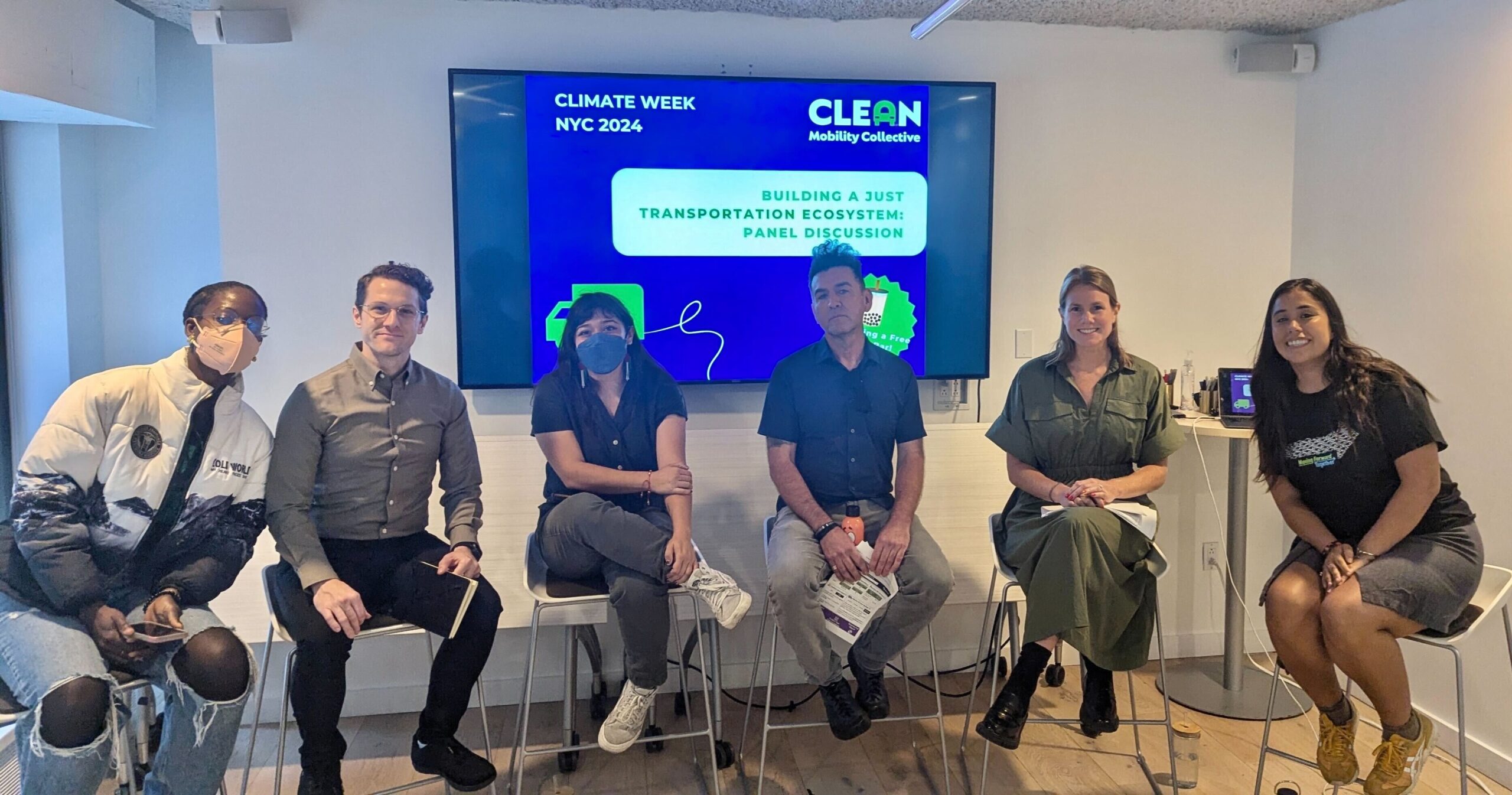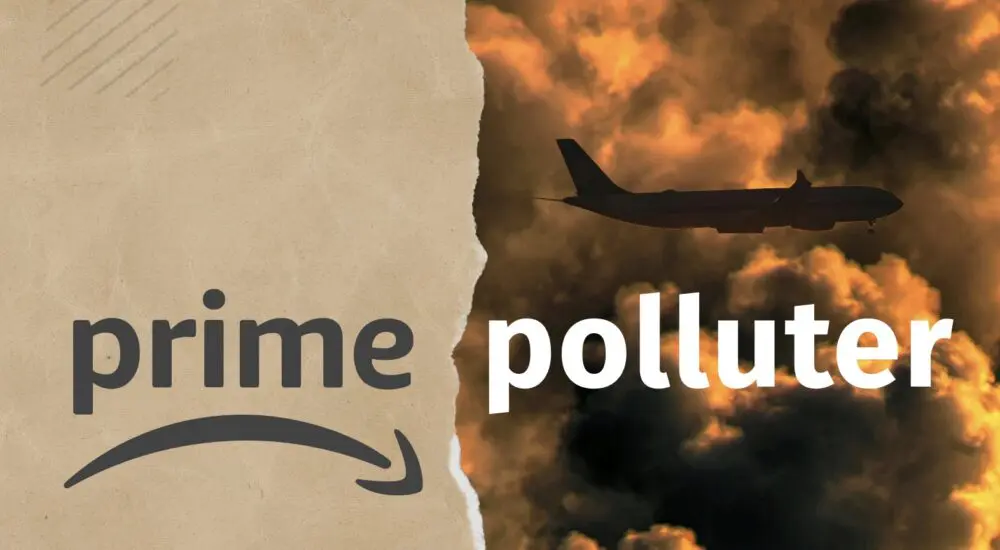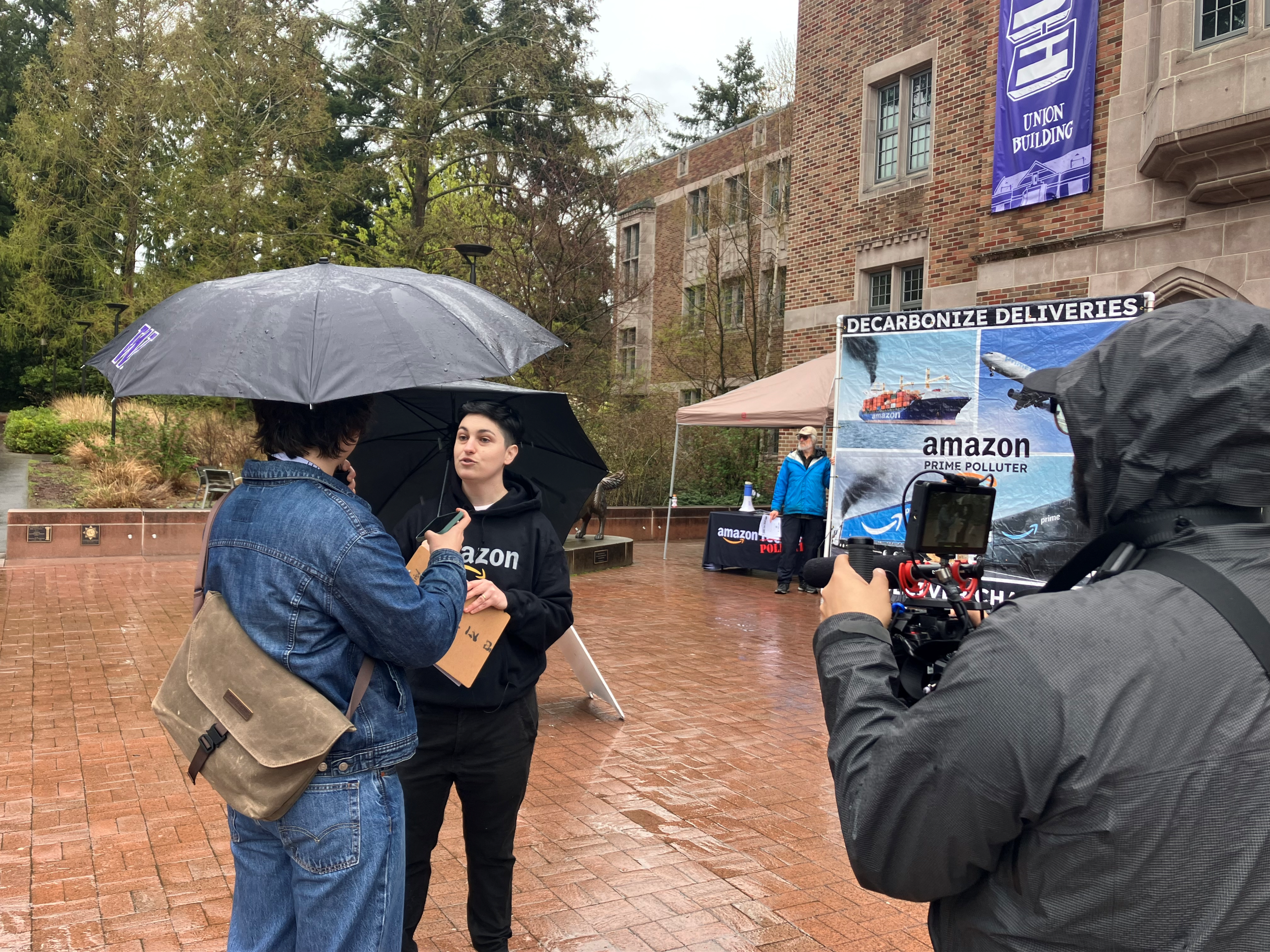


By Grace Healy, Ship It Zero Lead, Pacific Environment
Each year, Climate Week in New York City brings together corporate leaders, political decision makers, state and local officials and civil society representatives from all over the world to gather and move the needle on the biggest issue of our time: climate change. This year, Climate Week saw the largest engagement ever — with more than 900 events and 100,000 participants from around the world.
We co-hosted an amazing panel with Stand.earth, the Moving Forward Network and East Yard Communities for Environmental Justice that was moderated by Andrea Vidaurre, People’s Collective for Environmental Justice Co-Founder and 2024 Goldman Environmental Prize Winner.

Our session, “Building a Just Transportation Ecosystem” during Climate Week was a key opportunity to highlight that the transportation sector, and the corporations that are behind it, is a key driver in the climate crisis, comprising about a quarter of all greenhouse gas emissions. At the same time, the consequences of climate change will endanger transportation infrastructure by increasing the severity and frequency of extreme weather events; just this year we have seen the hottest summer and days on record.

Frontline and fenceline communities are the ones who continue to pay the price of inaction on climate change. Fossil-fueled transportation on-the-ground, in the air and at our ports are emitting toxins linked to increased rates of asthma and other respiratory conditions in portside communities, which are predominantly lower-income communities and communities of color.
This is why advocates on the panel called on corporate leaders attending Climate Week, like Amazon, to address transportation emissions in the company’s shipping and deliveries.

A joint investigation by Stand.earth Research Group (SRG), the Clean Mobility Collective (CMC), and the Ship it Zero (SiZ) campaign released this month revealed that Amazon’s greenhouse gas emissions have dramatically increased since Amazon’s announcement of a “Climate Pledge” in 2019.
The groups found that Amazon’s U.S. air freight pollution grew by 67%; Amazon’s delivery van carbon dioxide emissions grew over 190%; heavy-duty truck emissions grew by 51%.; inbound and domestic marine shipping emissions increased 26%, and Amazon Logistics U.S. dock-to-door delivery pollution generated 5.8 million metric tons of carbon dioxide (+18% average year-over-year since 2019).
Amazon, which has an estimated 38% share of the U.S. e-commerce market, has the market-shaping power and responsibility to decarbonize shipping and logistics consistent with the principles of climate and environmental justice. They need to take immediate action to decarbonize their maritime shipping by 2030.

Recent Updates





